Can background checks curb gun violence?
They may not be the panacea some promise.
This report is a part of "Rethinking Gun Violence," an ABC News series examining the level of gun violence in the U.S. -- and what can be done about it.
Darien Richardson, a 25-year-old woman in Maine, was sleeping in her apartment when armed intruders burst in and shot her several times in January 2010.
Her boyfriend survived the incident, but after weeks in the hospital, she died the following month due to complications from her gunshot wounds, Portland police said.
Finding her assailant seemed possible when authorities discovered that the handgun used to shoot her was apparently recovered at the scene of another murder, according to her family and news reports. But they were not able to trace it to the person who shot Darien.
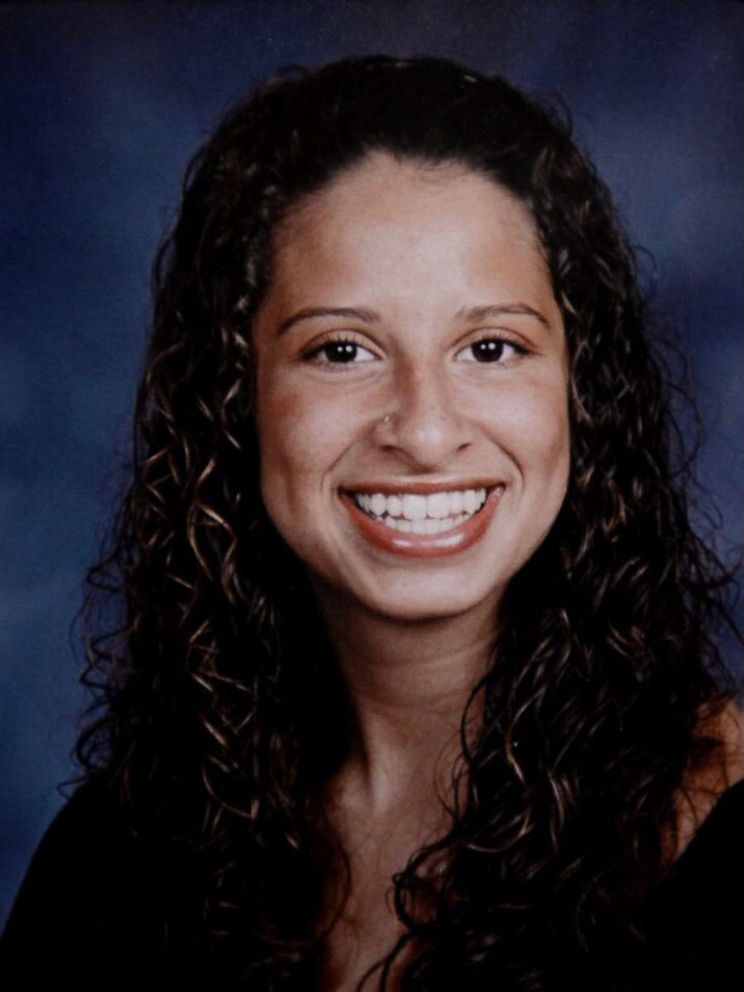
"A sad and unfortunate twist in this case is that a little more than a month after Darien and her boyfriend were shot, the same gun was used in a murder on Park Avenue here in Portland," Portland Police Assistant Chief Vernon Malloch told the Bangor Daily News in 2012. "That case is solved. We recovered the firearm. We know that it’s the same gun that killed both people. Unfortunately, we don’t know where the gun came from."
Watch ABC News Live on Mondays at 3 p.m. to hear more about gun violence from experts during roundtable discussions. And check back next week, when we look at why gun violence surged during the pandemic.
The person who pulled the trigger remains a mystery in part due to a major loophole in the nation’s gun background check system: a Bureau of Alcohol, Tobacco, Firearms and Explosives (ATF) investigation traced the gun back to a private sale at a Maine gun show, where the first owner sold it to someone he didn’t know, without a background check and without any record of the sale, the Bangor Daily News reported authorities said.
Even though they have the murder weapon, they don’t have the piece that they need -- where did that gun come from?
Not only did the loophole make the crime harder to solve, but it may also have made it easier for the crime to be committed in the first place.
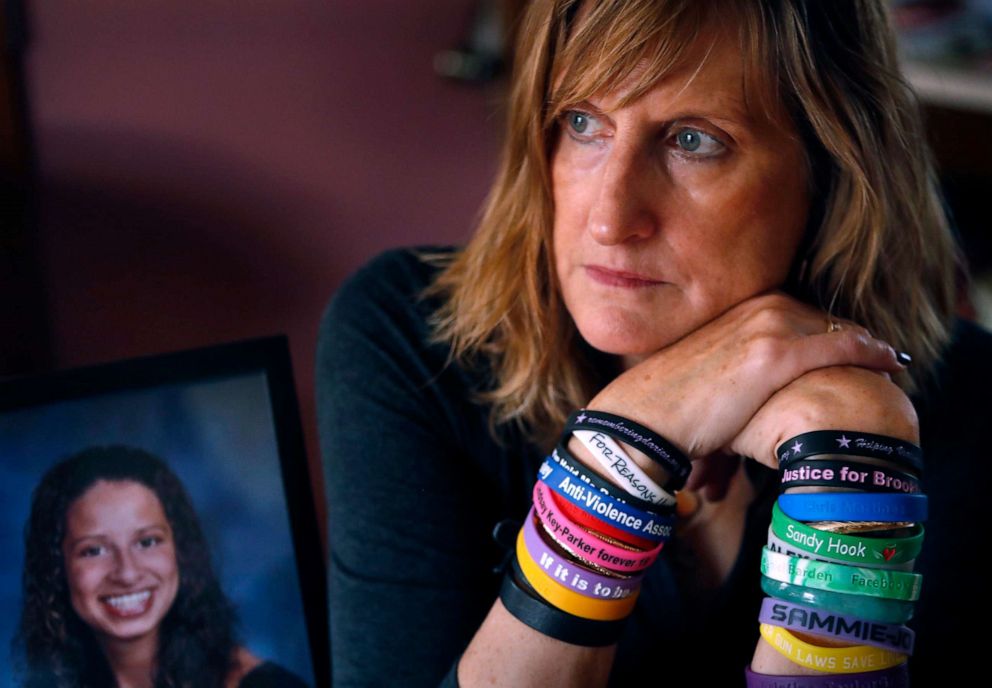
Portland Police told ABC News they couldn’t presently comment on any evidentiary issues in the case and that the department has been in contact with the Richardson family in order to help solve Darien's murder.
"We lost one of the most precious things we have in our lives. Darien is irreplaceable and it’s devastating, but on top of that, this crime has never been solved," Darien’s mother, Judi Richardson, told ABC News. "Even though they have the murder weapon, they don’t have the piece that they need -- where did that gun come from?"
"We have background checks, so why do we have a loophole that lets so many guns get through?" she added.
In order to sell a gun, all U.S. licensed gun dealers must run a potential purchaser through the National Instant Criminal Background Check System, a provision based in a federal law that was passed in 1993.
Those ineligible to purchase guns include people with criminal records, addicts of any controlled substance, certain people with a history of mental illness, those illegally in the U.S., those dishonorably discharged from the U.S. Armed Forces and subjects of domestic violence-related protective orders.
Even with the loopholes that exist, background checks keep guns from being legally sold to some of those most likely to commit crimes with them.
That is why for years, many lawmakers and advocates have rallied for passing universal background checks to expand federal law to include private purchases. Such a bill was introduced and passed in the House in March and awaits Senate action. Another bill, also passed in the House in March, seeks to extend the waiting period for background checks to 10 days.
But while universal background checks are often made out to be a panacea for curbing gun violence, there is mixed data about their efficacy.
Experts in the public health field say lawmakers have been too fixated on background checks as a one-way ticket to safer streets. In reality, gun violence requires a more complex, multi-faceted approach, they say.
Still, experts agree that if loopholes in the system were closed as a part of a more comprehensive strategy to reduce gun violence, background checks would be significantly more effective in curbing gun injuries, deaths and firearm trafficking.
Background check loopholes
An estimated 22% of gun owners acquired a firearm without a background check in the U.S. from 2013 to 2015, according to a 2017 Annals of Internal Medicine study.
Today’s gaping loopholes in federal law allow people to purchase or transfer guns without a background check at gun shows, private sales, or online.
Beyond private purchase sales, one of the major gaps in the system is the "boyfriend loophole," which bars domestic violence abusers from obtaining guns but only applies to current or former marital spouses, current or former cohabitants or someone who shares a child with the victim.
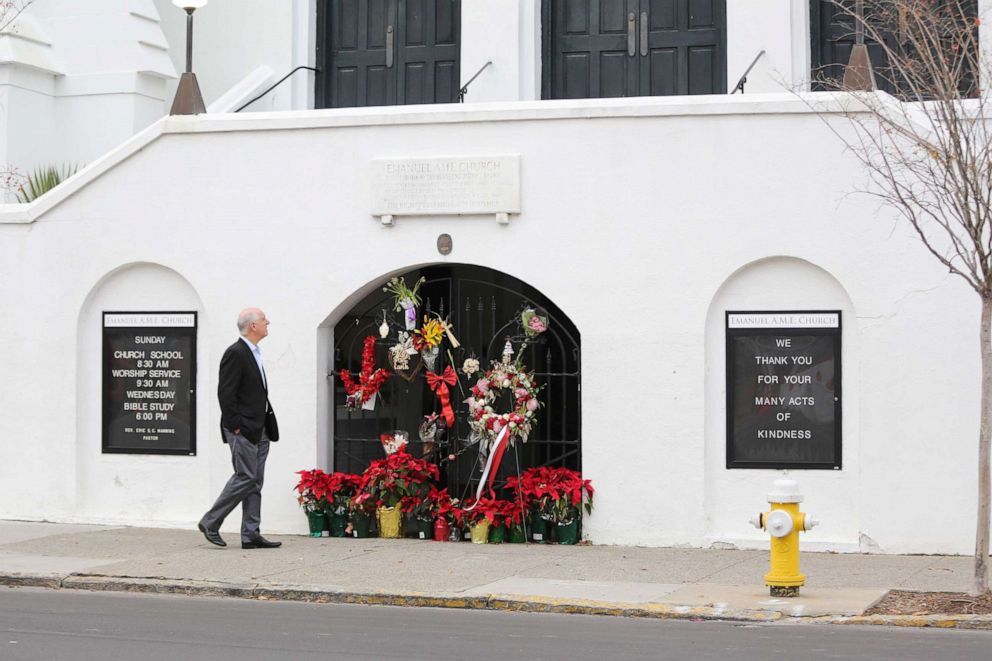
Then there's what has come to be known as the Charleston loophole, which allows gun sellers to proceed with a sale if the FBI investigation for a background check takes more than three days. This is how convicted shooter Dylan Roof, despite his criminal record, purchased the firearm he used in the 2015 Charleston, South Carolina massacre that killed nine worshippers at a historic African American church. Roof was convicted on 33 federal charges in 2016 and sentenced to nine life sentences.
This week, The Department of Justice announced a settlement with the victims' families, who had sued the federal government in 2016 because Roof was allowed to purchase a gun despite his prior criminal history.
The 2020 Catch-22
Despite these loopholes, in 2020 the FBI background check system stopped a record number of more than 300,000 illegal gun sales -- and about 42% of those denials were to people with felony convictions, according to FBI data.
Rob Wilcox, the federal legal director for Everytown for Gun Safety, a gun violence prevention organization, said that’s proof the background check system works.
"That shows clearly that the system can work in preventing individuals who shouldn't have guns from getting them," Wilcox told ABC News.
But while there were record firearm purchase stoppages in 2020, the year was one of the deadliest on record for gun violence with more than 40,000 lives lost from guns, according to data from the Gun Violence Archive, a nonprofit that tracks shooting incidents through public data, news reports and other sources. Of those, over 19,000 were from homicides, murders and unintentional shootings, and over 24,000 were from suicide.
The grim numbers show that even though background checks can work to an extent, gun violence will ensue if other measures aren’t put in place.
We have to stop thinking that we have quick fixes, because we could pass a national background check law tomorrow and the impact will be minimal.
Today, 22 states have their own universal background check laws that extend beyond federal law to include private sales and transfers. Some states require purchasers to receive a permit or a license, which includes a background check, to even purchase a gun.
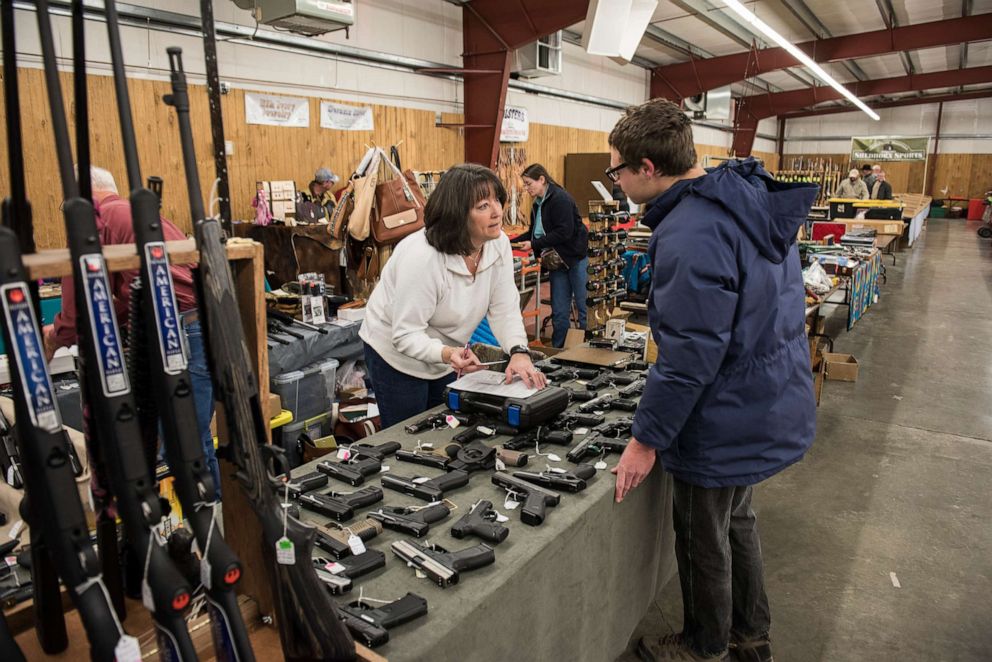
However, even in places where loopholes are less prevalent, research on the impact of universal background check requirements has yielded mixed results as to whether they reduce gun violence.
Questionable Impact
A 2019 study by Boston University and Harvard University medical researchers found that U.S. states with universal background checks for all gun sales had homicide rates 15% lower than states without such laws over a 26-year period. An analysis of 18 gun control policies by the RAND Corporation, a nonprofit global policy think tank, that evaluated existing research found background checks may decrease violent crime. The analysis also found "moderate evidence" that dealer background checks may reduce firearm homicide, but evidence of the impact of private-seller background checks on firearm homicides was inconclusive.
Other studies indicate universal background checks don’t make much of a difference at all.
A University of California, Davis study that observed the impact of California’s mandate for comprehensive background checks for nearly all firearms sales since 1991 found no change in the rates of firearm homicide or suicide through 2000. Those researchers conducted another study that found the repeal of comprehensive background check laws in Tennessee and Indiana had no effect on gun homicides or suicide rates in those states.
Still, Dr. Daniel Webster, the director of the Johns Hopkins Center for Gun Policy and Research, said there’s "pretty robust research evidence" showing background checks make a great impact when coupled with licensing laws (which require people to have a license issued by local authorities to buy, own, possess a gun), and result in "significant reductions in homicides, suicides, shootings of law enforcement officers in the line of duty, mass shootings, [and] diversions of guns from legal to illegal use."
Of course, statewide background checks may not measure up against what could be achieved with a national law requiring universal background checks. As it stands, even states with the strictest rules for who can purchase a gun can be impacted by cross-state-line firearm trafficking from states with looser rules.
"Guns that are trafficked between states nearly always originate from states without strong background check laws," Wilcox, of Everytown, said. "In the case of Chicago, 60% of the crime guns that are recovered come from out of state, a significant number coming from neighboring Indiana, which does not have laws requiring background checks," he said, citing data from Chicago’s 2017 Gun Trace Report.
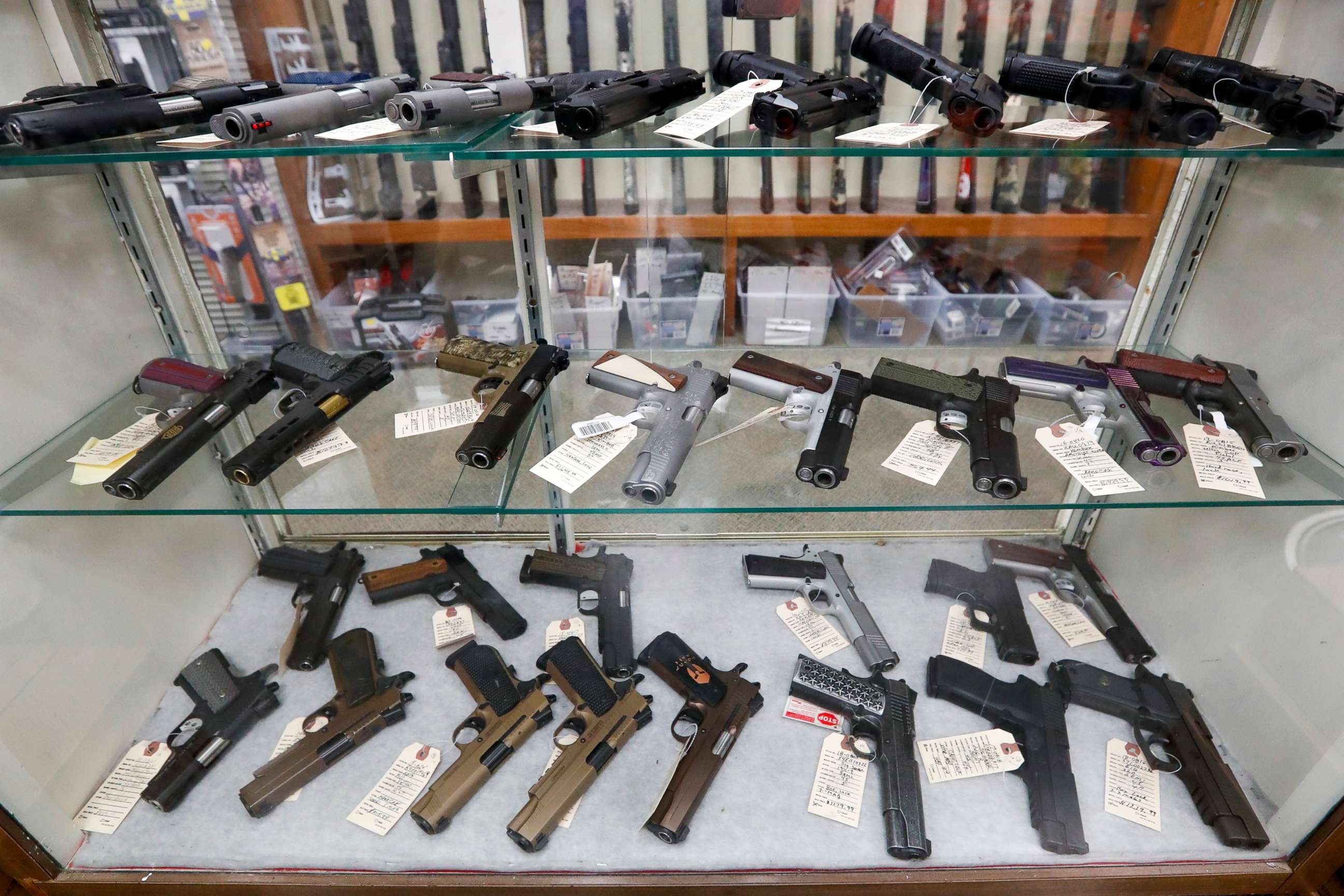
While supporters of universal background checks say they reduce gun violence by keeping guns out of the wrong hands and would help to shrink the black market, others argue that most criminals get their guns illegally anyway and would continue to find a path to do so. The National Rifle Association is among those voices that argue universal background checks would have little impact on criminality.
"FBI data makes clear the majority of criminals get their guns from the black market, straw purchase (where a person who is unable to pass a background check uses a proxy buyer to purchase the firearm for them), theft, or other sources that don’t involve a background check. Therefore, any claim that background checks will decrease crime rates lacks merit," a spokesperson for the NRA told ABC News.
Background checks are not the 'end-all, be-all solution'
While background checks aren’t perfect, supporters believe they’re a start. On a large scale, applicants with criminal histories being denied gun purchases lowers the risk for future violent offenses, Webster said, citing a 2019 study.
But background checks are far from "the end-all and be-all to the problem” of gun violence, Howard Spivak, the former director of the Division of Violence Prevention at the Centers for Disease Control and Prevention (CDC), told ABC News.
We didn’t eliminate cars, we did things to make things safer. We changed the design, we added airbags, we implemented safety strategies. There’s safety strategies that could be implemented with guns as well.
He said the gun violence epidemic needs to be looked at from a public health perspective, which combines laws like background checks and waiting periods, as well as "underlying mental health issues that may contribute to risk of firearm violence."
That includes training gun dealers to recognize signs of depression, educating gun sellers to look for warning signs of instability or violence, and increasing awareness of the risks of having guns in one's home, Spivak said.
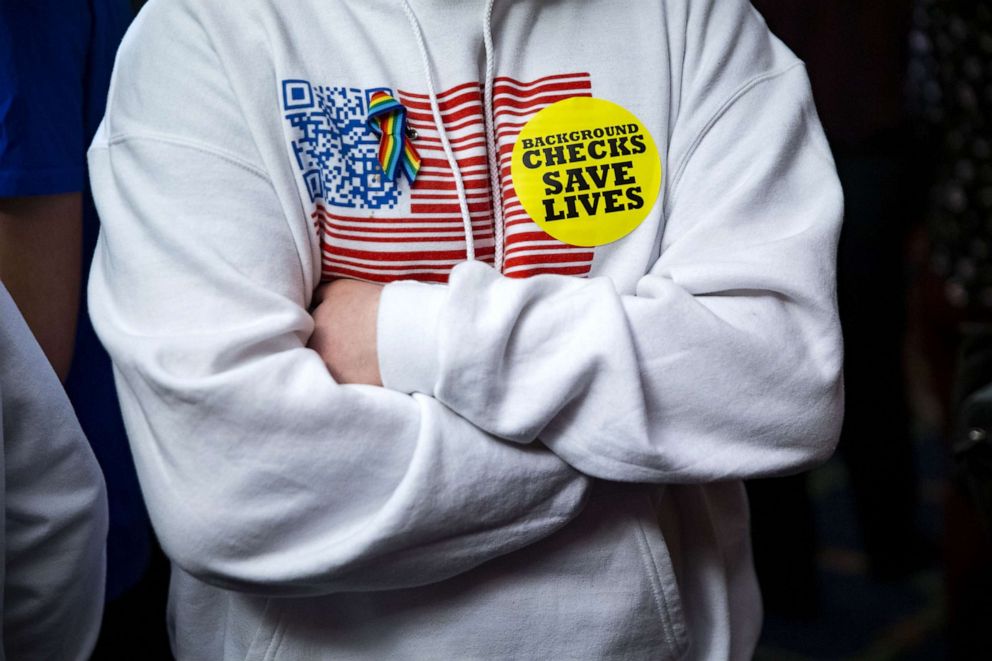
"Some of it has to do with changing behavior and attitudes and values around conflict, some of it has to do with better screening for risk -- it's a combination of all of those things that can reduce gun violence," he said.
Linda Degutis, the former director of the National Center for Injury Prevention and Control at the CDC, said the nation should respond to gun violence in a "comprehensive" way, similar to how the country responded to drunk driving and the opioid crisis.
"There were a number of laws that were put in place, it wasn’t just one, and it automatically made a difference," she said of the drunk driving issue. "So we saw a decline in crash deaths and injuries because of the multiple strategies that we used … We didn’t eliminate cars, we did things to make things safer. We changed the design, we added airbags, we implemented safety strategies. There’s safety strategies that could be implemented with guns as well," she said.
She compared focusing on background checks alone to approaching the opioid epidemic without dealing with addiction.
"Some of the early efforts around opioid addiction was at reducing access to opioids through prescriptions. It didn't reduce addiction, it drove people who were addicted into the black market of drugs," Degutis said. "It was too narrow of a focus, it wasn't dealing with addiction, it was just dealing with one avenue of access to drugs, ignoring the fact that there were other access points. And the more you drive people away from the legal access points, the less control you have."
She and Spivak told ABC News there needs to be different public messaging on the safety of guns, the threat they pose in households, safe storage and assuring the mental health of gun owners, especially as 60% of gun deaths are suicides, according to CDC data from 2019.
"We have to stop thinking that we have quick fixes, because we could pass a national background check law tomorrow and the impact will be minimal," Spivak said. "It's only one piece of a much bigger set of things we have to be doing."
Still a main focus
Despite calls for a more comprehensive approach to ending gun violence, background checks continue to be a main focus. Part of that may be because they are overwhelmingly supported, with 81% of Americans across all political stripes in favor of expanding checks to include private and gun show sales, according to a 2021 Pew Research Center survey.
In contrast, other divisive gun policies -- such as concealed carry permits, allowing teachers to be armed and banning assault-style weapons and high capacity magazines -- see much more of a dramatic split among lawmakers, according to Pew.
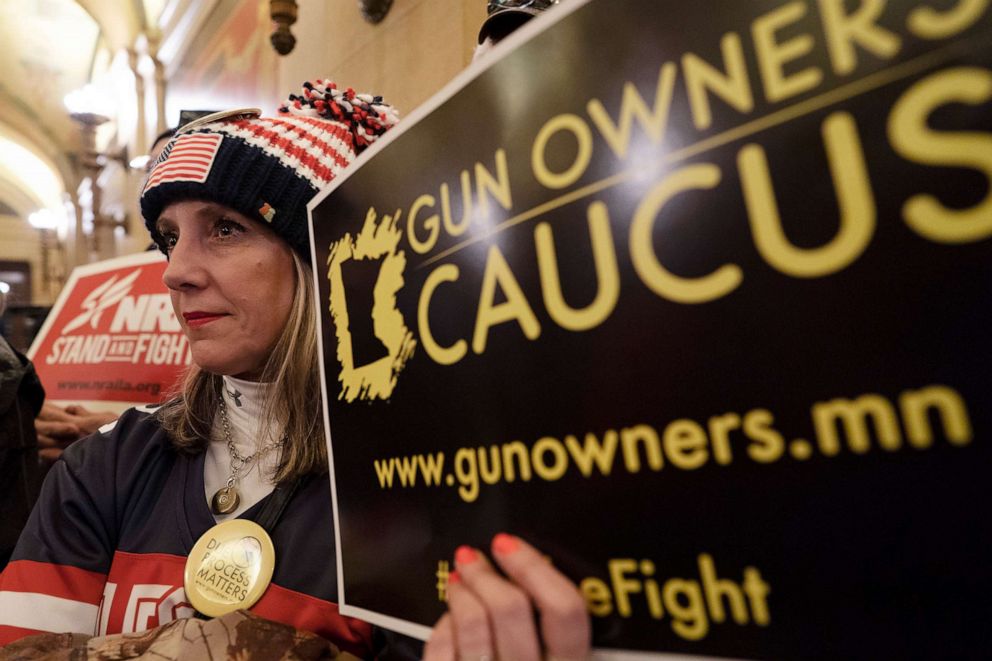
Some of the nation’s top police leaders have also voiced support for universal background checks. In March, the Major Cities Chiefs Association, a network of police executives representing the 79 largest cities in the U.S. and Canada, addressed the spike in crime across the U.S. over the past years and called for "establishing a strong system for universal background checks to cover all firearm purchases" and close the internet sale and gun show loopholes.
"It will be challenging to truly address the gun violence threat without closing these loopholes since guns will continue to be sold to those who are not permitted under the law to possess one," the group said in a statement.
Nearly 10 years on, Darien Richardson’s family continues to fight for universal background checks.
In her case, while a background check may not have prevented the shooter from getting their hands on a gun and killing her in the first place, it would have at least put the sale on record and made it easier to trace it back to the shooter. For that, her family feels like it's an appropriate place to start.
"It's gotten worse, even since we got involved and that was 10 years ago," Judi said. "What's it going to take?"
ABC News' Luke Barr contributed to this report.




